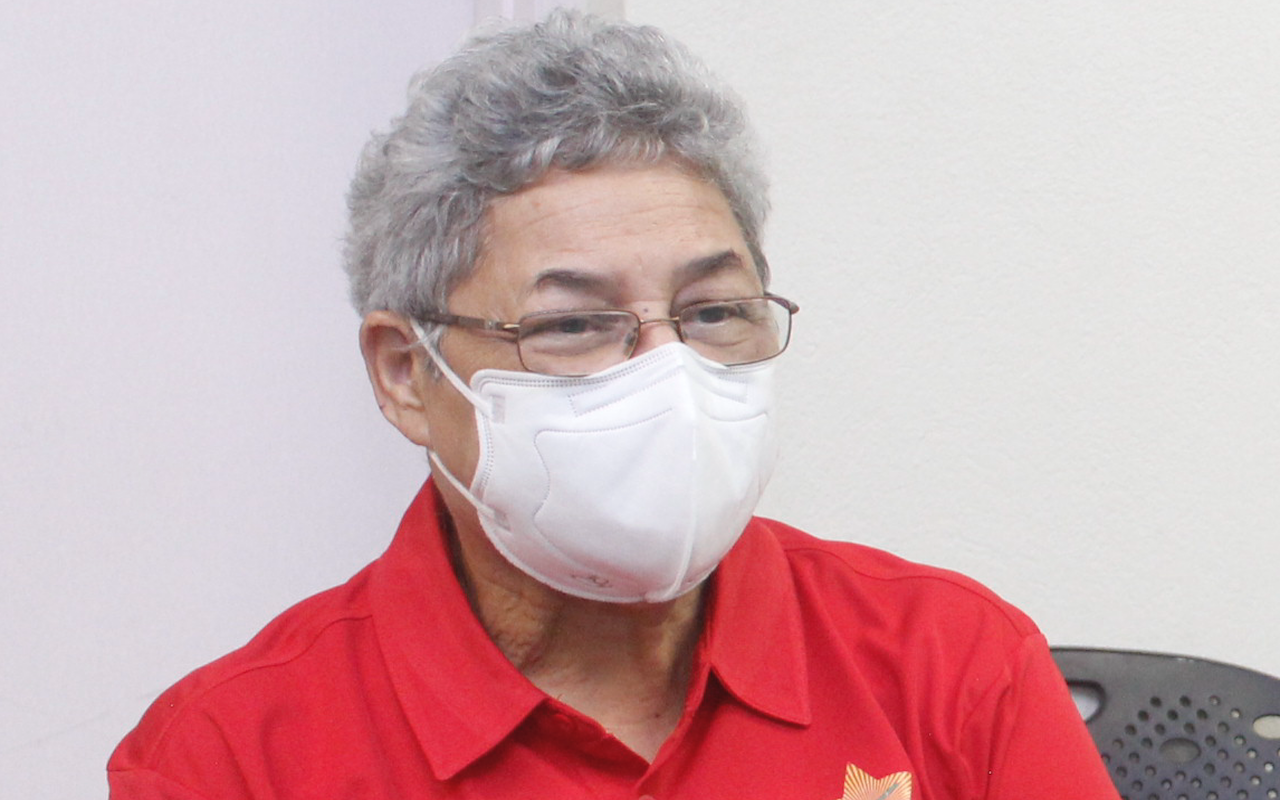Barbados’ COVID-19 vaccination drive has slowed down considerably over the first quarter of the year with the number of first, second and booster doses plummeting to new lows.
However, joint coordinator of the National Vaccine Programme Dr Elizabeth Ferdinand, warning that the immunity provided by the first and second doses is likely to wane within six months, said the need to be fully vaccinated and get boosters is even more important as people engage in more social activities like partying and Crop Over festivities.
As of Monday, 161,116 Barbadians or 69.44 per cent of the eligible population had received a first dose of a COVID-19 vaccine. The number of fully vaccinated people stood at 152,651 or 65.78 per cent of the eligible population.
In January, February and March, the number of second doses recorded were 2,776, 1,937 and 1,124, respectively, and the total number of citizens boosted was a meagre 48,058, representing 17.25 per cent of the eligible population.
“For the months January, February, and March, there was a decline in the number of doses that we have given in terms of first doses as well as second as well as boosters. So the numbers have really come down a lot,” Dr Ferdinand told Barbados TODAY.
“The boosters went down drastically from 10,000 [per month] to 2,000, so it’s definitely down. [In 2021] we were getting thousands each week, far less in the month. If up to December we had done 157,000 doses in 11 months, you would see that the numbers were really high so there has been a decrease,” she added.
The respected public health official revealed that while seniors, who are most vulnerable to the COVID-19 virus, have been coming forward for their shots, just about 50 per cent of people aged 20-50 are fully vaccinated.
For most events that require vaccination or testing, including for the upcoming Crop Over season, people are considered fully vaccinated once they have taken two doses of the vaccine.
Dr Ferdinand explained that in medical circles, that is widely accepted as the “primary course” for COVID vaccination. However, she warned that, eventually, immunity begins to wane.
“In the case of COVID, they found that roughly after five to six months of having your primary series of vaccines, people’s immunity went down. So they decide to give them the boost and that is where the booster came in, so that you give the booster and hopefully it should stimulate your immune system back up again so that you won’t catch the disease,” the vaccine campaign coordinator explained.
“People have asked me ‘will we need a fourth shot or a second booster?’ I don’t know at this particular point in time. It also depends on the variant. If the variant of the virus changes very much from what it was originally, we might then have to change the vaccine to something different – either improve it or modify it in some way or if it hasn’t changed that much, maybe we can do a second booster. We are not sure, so we are waiting to see what studies will bring forth.”
When asked why the fully vaccinated designation is not reserved for persons who are boosted, Dr Ferdinand said it would be difficult to continue shifting the proverbial goalpost.
“If you are travelling or you are going somewhere you really should have the booster, but to change the thing to say that everybody who wants to go into the fete must be boosted… I don’t think we are willing to go so far,” she said.
“We are still advocating that people should get their booster shot to make sure that their immunity is at the peak or as high as possible. We are offering boosters to those who have had second doses and at the same time we are appealing to those who have not been vaccinated or those who have only had one shot to come forward and get the second shot – become fully vaccinated or start the process,” she added.
Dr Ferdinand also appealed to parents to take their children to the country’s vaccination centres. She said 55.83 per cent of the 12-18 population, or 11,725 people in that age group, had taken the first dose and 9,783, or 51.34 per cent, were fully vaccinated.
“Yes, we know that the older people are more vulnerable and they are the ones that are dying, but a lot of them are not vaccinated. Those who have died and have been vaccinated tend to have more comorbidities than the regular [person]; they usually tend to have more than one comorbidity. So, age is a factor, but then you might have diabetes, you might have hypertension, you may have heart failure on top of that or you may be obese. All of these things add up,” explained Dr Ferdinand.
kareemsmith@barbadostoday.bb




